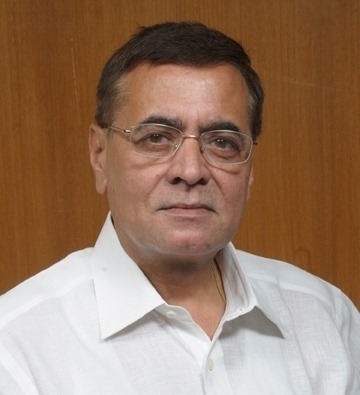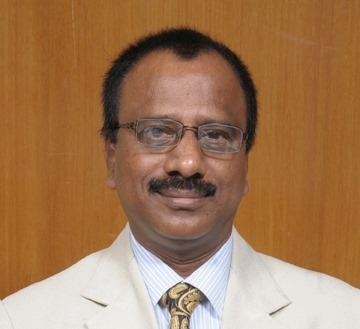
In May 2010, then-prime minister Manmohan Singh made a few headlines by saying what nearly every lawyer and educator in the country knew to be true: he called Indian legal education a “sea of institutionalised mediocrity”, dotted with a few “islands of excellence”.
Around the same time, a fresh air was gusting through the corridors of the Bar Council of India (BCI): senior counsel Gopal Subramanium had become the body's chairman, but unlike the other members, he was not elected by lawyers into a bar council but was an ex officio of the legal regulator by dint of his position as solicitor general.
By July 2010, Subramanium had already begun to really shake things up, having announced the first All India Bar Exam (AIBE), as well as the revolutionary proposal to reduce the number of India's mushrooming law colleges from 913 to 175 within several years.
Not wasting any time, according to BCI meeting minutes then published on the BCI's website, by September 2010, the BCI had outright rejected 37 law schools' applications for accreditation and 17 colleges were refused permission to hold five-year LLB degree.
By 2012, a year after Subramanium was forced to leave the BCI after resigning as solicitor general, the number of law schools stood at around 800, according to his successor chairman and senior counsel Ashok Parija.
However, Subramanium's and Parija's ambitious targets were never met.
Quite the opposite, in fact: by early 2014 the number of law schools had exploded to a record level of 1,200, after many of the disaffiliated colleges filed writ petitions or were allowed back onto the books, with hundreds of new ones having been granted permission by the BCI to operate. Between April and December of 2014 alone, 92 new colleges were given the BCI's blessings to start up, according information provided by the BCI to the law ministry.
Where did it all go wrong?

A damning 107-page judgment delivered last week by Patiala House Court special judge Anju Bajaj Chandna, may hold some answers. Chandna held in the CBI trial that there was no reasonable doubt that three elected Bar Council of India (BCI) members had regularly conspired to extort money from law colleges for passing “factual” or “favourable” inspection reports.
After hearing 24 witnesses, and examining the Central Bureau of Investigation's (CBI) 28 wiretapped phone calls made in 2010 (with approval from the home ministry), Chandna roundly rejected the former elected bar council officials’ defences, including their claim that they had been stitched up by former BCI chairman Gopal Subramanium in an elaborate revenge plot.
Their names are Rajinder Singh Rana (who had been elected to the Delhi bar council), senior counsel Milan Kumar Dey (elected to the Jharkhand state bar council) and Dhanapal Raj (elected to the Tamil Nadu bar council).
All three were BCI members in October 2010 when they accepted the bribe, and Raj was the body's vice chairman.
All three were sentenced by Chandna to five years in jail each, on one to three separate offences under the Prevention of Corruption Act 1988, in addition to a few Rs lakhs in fines. Yashpal Singh, NREC College Khurja assistant professor, was jailed for five years for abetting the bribes in a very hands-on manner, by acting as a Rana's go-between to a law school.
Rana and Raj are both facing trial in 3 other similar cases, at least one of which concerns a bribe solicited for inspecting another law school (Global Law College), according to their bail application with the Delhi high court.
“There are other cases where (Rana and Raj) have been charge-sheeted which may end with same the same result,” commented former BCI chairman Ashok Parija.
“This is really high time for the bar council to put its house in order,” he added.

Making a law school
In August 2010, School of Law Studies, Bulandshahr, in Uttar Pradesh, had obtained the requisite government permission, by way of no objection certificate (NOC), and was affiliated to Chaudhary Charan Singh (CCS) University, Meerut.
But it was not yet a law school.
Therefore, on 8 August 2010, it wrote an application to the Bar Council of India (BCI) asking it to be allowed to begin teaching law to students from the coming academic year.
The BCI has the power to do this under the Advocates Act 1961, and Rule 20 of its Legal Education Rules 2008, and is supposed to send at least two of its members, delegated from state bar councils, to hold an inspection to check that the law school has sufficient faculty, library books, teaching facilities and so on. In short, the BCI is supposed to check that a law school can impart a satisfactory legal education.
Then-BCI vice-chairman Raj, eventually sent Rana and Dey to Bulandshahr on 29 and 30 October 2010 to carry out their inspection, to meet the law college's principal and chairman Prashaant Garg.
After visiting the law school on 29 October, according to the judgment and the CBI wiretaps, Rana, Raj and Dey “had mutual discussions regarding demand of bribe” from Garg.
The wiretaps revealed that the three BCI members could not agree on exactly how much money to extort from Bulandshahr law-school-to-be.
On 31 October, Raj and Dey talked on the phone, discussing the potential of reducing their bribe request of Rs 10 lakh to eight or six. However, both agreed that was a bad idea.
On 1 November, Dey and Rana apparently negotiated over how much they should charge, with Dey initially not wanting to budge from a higher bribe request of Rs 10 lakh for producing a “favourable report” about the college, which would carry their implicit guarantee that the BCI would greenlight the college.
However, Dey finally agreed with Rana to them taking only Rs 3 lakh for a “factual report” of the college “without having any responsibility” as to whether the BCI would accredit the college or not. That would work out to Rs 1 lakh to each of the three BCI members involved.
Throughout, Professor Singh had “been facilitating the negotiations”, according to the judgment, and “the conversations clearly demonstrate”, wrote Chandna, that the three BCI members “have been seeking bribe from other colleges also and the present one is not an isolated incident.”
On 3 November, Garg paid Rana Rs 2.5 lakh in cash, followed by the remaining Rs 50,000 in cash on 8 November.
“It is unfortunate that persons responsible for upholding law indulged into corrupt activities and violated the rule of law,” she added, drily. “It is clear that accused have been seeking bribe from new and old law colleges as a matter of right. The demand in such form is nothing but extortion and also amounts to professional misconduct.”
The untouchables?
Despite Rana, Raj and Dey having been arrested in 2010 and the case for the defence having been exceedingly weak, the convictions took more than five years to come in.
But without the wiretaps following an apparent anonymous tip-off received by the CBI (surveillance orders had been “issued by top officers of Home Ministry… on the basis of concrete source information”, said Chandna) it is likely the case would have taken longer or died of exhaustion.
Indeed, cases against lawyers by police are rare, and even rarer are those against lawyers' elected representatives - whether on statutory bar councils or the more numerous and informal bar associations.
After Rana was arrested at his residence by the CBI in December 2010, a local Delhi bar association called for a day-long strike, with some lawyers gathering at Rana's house to object to the manner of the arrest; the CBI in turn slapped FIRs on the protesting lawyers, alleging that CBI staff had been manhandled.
“This is the first time a member of the Bar Council of India has been convicted,” said claimed BCI chairman Parija.
After Rana's 2010 arrest, the three BCI members were at some point suspended from the BCI (though they remained as state bar council members).
The date of their suspension from the BCI is hard to pinpoint exactly (the BCI did not respond to requests for comment), but according to the judgment, Dey was still a BCI member from Jharkhand until 21 June 2012.
Raj was granted interim anticipatory bail by the Madras high court, though anticipatory bail was rejected in early 2011 by the Delhi high court and the Supreme Court (represented by none other than senior counsel Ram Jethmalani)
Rana spent some time in jail in 2010 and 2011 and was refused bail several times (the Delhi high court said on 29 December 2010, that Rana's “influence” and “apprehension of tampering of the evidence” was too great for him to get bail).
However, at some point – we could not confirm when exactly - Rana did get out on bail and was appointed as associate managing trustee of the Bar Council of India Trust (he is still listed on the BCI website as holding that position).
Parija commented that Rana having been appointed to the BCI trustee role, “notwithtstanding that charges were framed against him for the offences… is completely unethical”.
Parija's successor and current BCI chairman, Manan Kumar Mishra, did not respond to two emails seeking comment on Rana's appointment.
Weak defences
Despite the difficulties in getting this far, when the CBI trial finally commenced in November 2015, the three BCI members' defences were altogether more weak.
Rana, Raj and Dey “categorically denied” having raised a bribe demand or having accepted Rs 3 lakh from Garg.
According to the judgment, they also claimed that the “case is result of animosity with Gopal Subramaniyam (sic), the then Chairman BCI on the issue of shifting and demolition of building of BCI as he (accused) stalled the process of shifting and demolition of building of BCI regarding which a civil suit is also pending. In order to take revenge, false cases have been slapped against accused and witnesses have deposed falsely under the influence of CBI”.
Chandna held that “no evidence is brought to substantiate” the allegations they made against Subramanium.
(“I have absolutely no ill will or anything towards them,” commented Subramanium, adding that he “had absolutely no idea” that they would be arrested by the CBI or that they were being wiretapped. “I should have been told in any event,” he said, noting that he protested to the CBI about the secret wiretapping once he found out about it. However, Subramanium also noted that what Rana, Raj and Dey “have done is completely wrong. full stop”.)
Raj also tried to claim that the voices on the wiretaps was not his and was fabricated, but the judge accepted the CBI's expert analysis and several witness statements that corroborated certain conversations as having happened (Raj's defence “is not believable and appears to be an afterthought only”, she held).
The three also seemed to claim that they were never in Bulandshahr for an inspection, but Chandna disagreed, presented with the wiretaps and hotel bills, which “completely demolished” the defendants' defence that “they did not conduct any inspection” of the school.
One particularly helpful prosecution witness turned out to be Prashaant Garg, the chairman of the aspiring Bulandshahr law school who went from co-accused to whistleblower (in exchange for freedom from prosecution), deposing in detail about the Rs 3 lakhs he paid the BCI members and corroborating his phone conversations he had with Dey and Rana.
The BCI members' lawyers tried to attack Garg's testimony as unreliable, but the judge found his confession given to a magistrate was legally admissible, voluntary and without “contradictions, improvements or infirmities”, his confession having been a “true and complete disclosure of facts”.
His evidence “cannot be termed as unreliable for any reason, same being specific, cogent and satisfies the test of credibility and consistency”.
As for “the defence of accused Rajinder Singh Rana that he never met Prashaant Garg is demolished”, said Chandna.
The judge, after carefully considering even jurisprudence about whether suspects' constitutional rights are violated by compelling them to provide voice samples and whether the CBI needed to seek permission from the BCI or state bar councils before prosecuting the BCI officers, concluded: “In the face of strong prosecution evidence, accused have no substantial defence, there is nothing on record to indicate that accused are innocent or falsely implicated.”
The wiretaps “absolutely incriminate all accused persons for the charged offences beyond reasonable doubt”, she noted. 
Small fry
The amounts at stake in this instance are arguably peanuts (Rs 3 lakh in this case, and allegedly Rs 6 lakh in the still pending Global Law College case). This could also explain that not a single national newspaper appeared to have carried last week's PTI story on the three BCI members' jail terms.
But this is an important case. In the words of Chandna, the “convicts were handed over important task of ensuring good standards of legal education for future generation but they preferred to keep aside ethical principles for monetary gains”.
But with three cases still pending against against Rana, Raj and Dey, and Chandna suggesting in her judgment that this was clearly not an isolated incident, the question deserves to be asked whether this was just the tip of the iceberg and whether they were the only members ever involved.
If it was possible for law schools to buy “favourable” or even “factual” inspection reports for a few lakh rupees, is there a correlation to 900 law colleges – a “sea of mediocrity” to cite Manmohan Singh - having sprung up by 2010?
And what does it say that in the six years since then, despite the arrests of Rana and others, the number of law schools had again exploded by 50%?
BCI chairman Mishra did not respond to two emails seeking comment.
But these are not just questions that need to be asked about the legal profession. As Chandna rightly pointed out in her judgment, “The situation raises range of questions about role, conduct and accountability of such governing institutions and their office bearers towards the society.”
Indeed, regulators such as the Medical Council of India (MCI) have – perhaps deservedly in light the number of medical students and the enormous responsibility doctors hold - faced far more attention and controversy than the BCI has.
The government certainly seems to be aware. Like the UPA government before it, the current BJP-led regime has also repeatedly mooted that regulators such as the BCI and MCI need to be reformed.
And only last week, heeding the call of the Supreme Court earlier this month, the Law Commission has opened up a consultation about the regulation of the legal profession and legal education.
Perhaps, five years after Subramanium left the BCI, fresh winds of change have begun blowing yet again...
A shorter version of this article was first published in Mint. Mint's association with LegallyIndia.com will bring you regular insight and analysis of major developments in law and the legal world.
threads most popular
thread most upvoted
comment newest
first oldest
first
I'm still amazed and puzzled why not a single newspaper other than Mint has covered this.
Also worth noting that the PTI had written a story and the CBI had issued a press release about it...
There's no real reason that I can understand or have sympathy for, at least.
He was merely referring to Mishra and lack of any comment from him to underscore a different aspect ;)
But maybe we should try, you're right, you never know, one might surprise us.
A thought I want to share: while corruption in any form is wrong (period), it is alarming how the convicted officials stooped so low for such meager amounts... it shows how little value they place on their office.
threads most popular
thread most upvoted
comment newest
first oldest
first